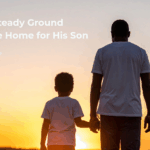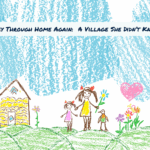Adversity is part of life.
Boosting resilience is a key to a thriving life, especially in our line of work. In this moving Tedx Talk, wellbeing and resilience expert, Lucy Hone, shared her experiences as a psychological researcher and more importantly, the personal experiences she faced as a grieving parent. After years of research and work in the field, she received the ultimate opportunity to put her practices to work when she suddenly lost her daughter and friends in a brutal car accident.
Her whole world came crashing down on her, and the last thing she wanted to hear was everything that the well-meaning people were telling her. The flyers, pamphlets, experts, etc. all left her and her husband feeling like victims, thereby reinforcing a mindset that stunted their journey towards healing.
Lucy said, “parental bereavement is widely acknowledged as the hardest of losses to bear. But, five years on, I can tell you that you can rise up from adversity — that it is utterly possible to make yourself think and act in certain ways that help you navigate tough times.”
She shared three go-to strategies to help us get through our darkest days. I shared these three tooltips with our staff, and they’re already helping us to be more effective at our jobs. We thought it would be helpful to share with our readers, too, because as you’ll see in the first tip, adversity does not discriminate.
Resilient people know that suffering is a part of life. We are not entitled to perfect lives. Adversity does not discriminate. It’s important to change the knee-jerk reaction mindset of “why me?” into one that says, “why not me?” Terrible things happen to so many of us, “now’s the time to sink or swim.”
Resilient people are good at carefully choosing where they direct their attention. They can focus well on things they can change and accept things they cannot. “Benefit finding” is a common practice in psychology, but when it is applied to grief, it involves finding things to be grateful for. We can train ourselves to properly acknowledge the bad but focus on the good.
Resilient people ask themselves – is what I’m doing helping or harming me? This question was the most used by Lucy especially in the early days of her grief. It’s so powerful because it puts us in the seat of control over our decisions. It forces us to make choices consciously and allows us to decide if the action we’re about to take will work for us or against us in terms of moving us toward our goals.
One of the lines that struck me in her talk, and that I’m keeping close-by as a reminder is, “don’t lose what you have to what you have lost.” The sun will shine again tomorrow, guaranteed. So, I ask myself, “how can I move forward while reducing future suffering?” If you’re like me and millions of other fellow humans, you have experienced trauma too. While the trauma certainly stole pieces of our past, the idea is to try to not let that trauma steal your present and your future, too. I am adding these tips outlined by Lucy to my toolbox to help me shift my perspective into one that counts the losses but gets up and tries again, resolving to not let the loss get counted twice. I hope they help you too.
You can read the article here.
Journey on.

Erin E. Minor, CEO






